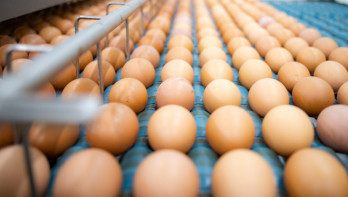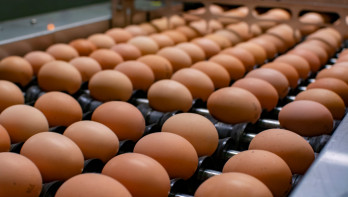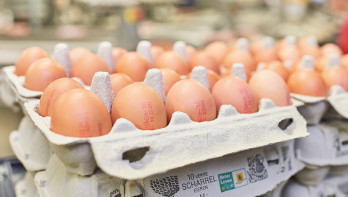Analysis Feature
Egg price takes a step back at the end of 2024
The Dutch egg price has slightly decreased in the last weeks of the year. Real shortages have been prevented, but the market has certainly been tight. In Germany, the quotation is holding steady, as the demand from our eastern neighbors is even stronger.
The price of eggs took a step down at the end of the year. The price of 100 brown free-range eggs size M decreased by 35 cents in the last two weeks to €14.90.
The demand for eggs remained quite strong, although the price decreased slightly because real shortages did not occur despite the tight market. This does not mean that there are no hitches anywhere in the production chains. While free-range and colony eggs have proven to be sufficiently available, it has not always been easy for large buyers to purchase free-range and organic eggs. Reportedly, existing contracts can be fulfilled, but purchasing eggs on the open market has proven to be challenging in practice.
German egg price remains stable
Meanwhile, the German egg price remains unchanged. According to the Weser-Ems quotation, eggs are traded at €15.20 per hundred pieces in our neighboring country. This was reasonably in line with expectations since the German price has reached its plateau. In Germany, it has been heard for weeks that prices would remain high at least until Christmas. In Germany, it is even more pronounced than in the Netherlands that demand peaks around the holidays. The demand from both consumers and the industry is higher during this period. This is partly due to increased consumption of eggs at Christmas breakfasts, but also the consumption of pastries and desserts is growing significantly. This not only leads to higher consumer demand but also to increased industrial use.
The popularity of eggs around Christmas caused the industry to anticipate a significant last-minute boost in demand. The industry anticipated very strong sales, as Christmas fell on a Wednesday. This results in a substantial increase in egg demand among consumers in the first two days of the week. As a result, packing stations have a lot of work supplying the retail sector. This explains why the German price has managed to maintain its high level, while prices in the Netherlands have already taken a step down.
New Year's question uncertain
The main question looming over the market now is whether the price will hold up in the coming week now that Christmas is over. Two years ago, the price also rose after the holidays due to limited supply. Whether prices will rise again in the new year seems once again to be a matter of supply. Demand remains more constant nowadays, as consumers structurally eat more eggs than before. This limits the decline in demand compared to what historical results would suggest.



